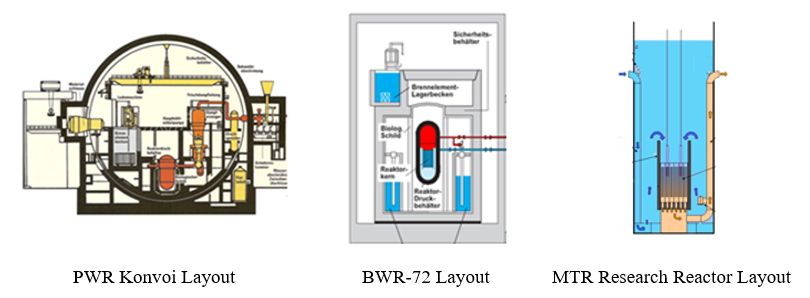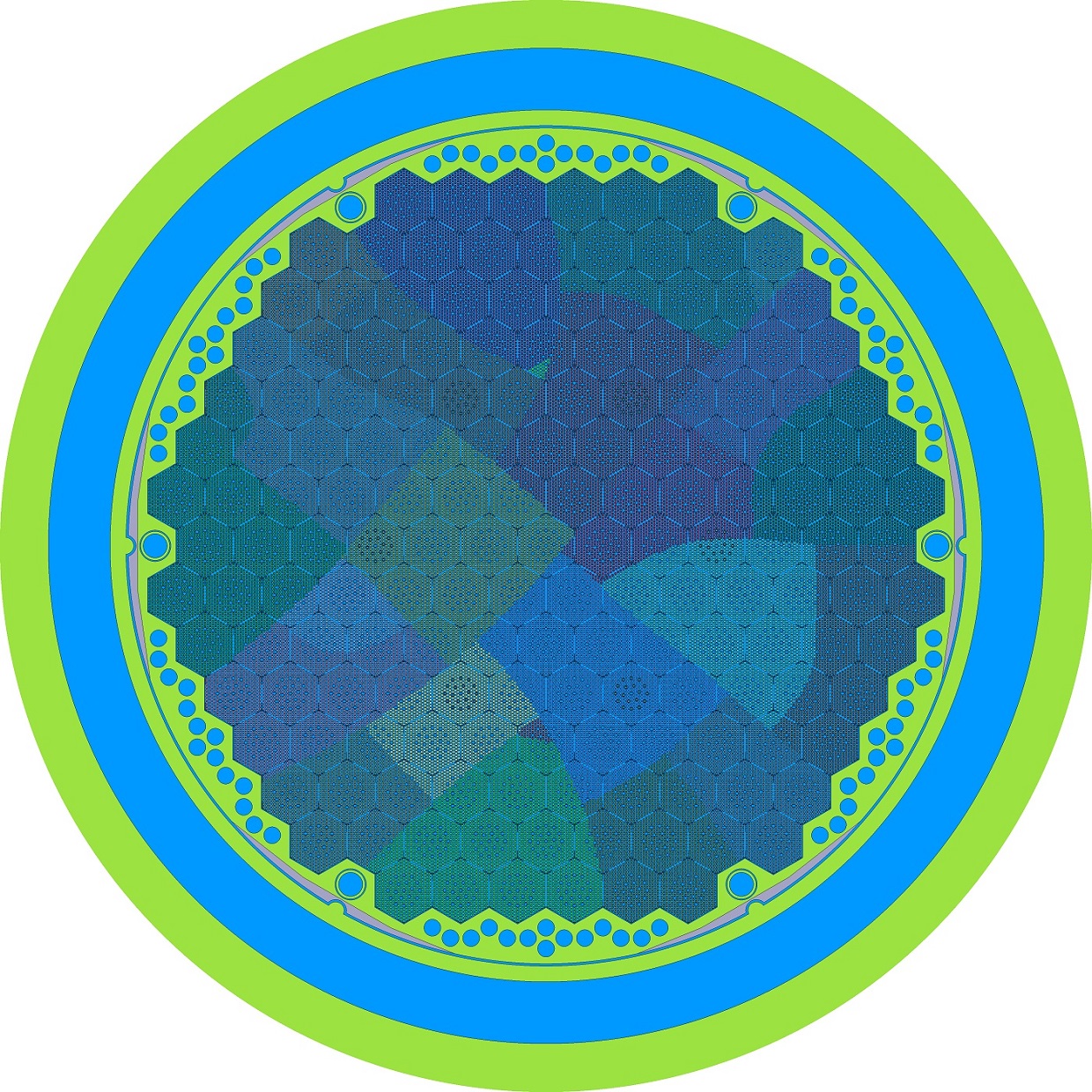Research goal
Research is focused on providing validated numerical tools for the safety assessment of different reactor designs. These activities are embedded in the Energy Programme of the Helmholtz Association of Research Centres (HGF) and the NUSAFE Programme of the Karlsruhe Institute of Technology (KIT). The numerical simulation tools describe the behaviour of nuclear power plants under conditions of design basis and accidents with core degradation. They are the focus of safety analyses, safety reviews with deterministic and probabilistic methods.
Research focus
The Reactor Physics and Dynamics Group (RPD) is concentrated on technical areas indispensable for safety assessment e.g. core and plant thermal hydraulics, reactor static and dynamics, reactor safety as well as with methods for uncertainty quantification and methods and algorithms for High Performance Computer (HPC). The investigations are dealing with any reactor type under operation around Germany and under construction or development in the world in order to be able to quantify the radiological risk that may arise from them in the hypothetical case of an accident.

The methods and tools for safety assessment under development, validation and improvements are dealing with different physical domains, which can be encountered in the core, reactor pressure vessel, main circuits and the containment of a nuclear power plant under normal or accidental conditions. The following areas are of special interest:
- Nuclear thermal hydraulics: In-house computational codes for the detailed simulation of the reactor cores of water, liquid metal and gas-cooled reactors are developed and validated, e.g. the subchannel code SubChanFlow and porous media analysis code TwoPorFlow.
- Reactor Physics and Dynamics: The focus is on the development of a parallel PN-solver based on finite elements and domain decomposition named PARAFISH and on the development of multiphysical methods for improved core simulation of different reactor types. Both deterministic transport (SP3-transport) and Monte Carlo (SERPENT, MCNP) codes are coupled with SubChanFlow for pin/subchannel based simulations.
- Reactor Safety: The focus is the improvement and validation of computational tools for the safety evaluations of LWR in the frame of the international CAMP-Programme of the US NRC with emphasis on design basic accidents. In the area of severe accidents, KIT has long term co-operations with the US NRC within the framework of the international CSARP-Programme (MELCOR) and the French IRSN in the frame of bilateral co-operation for the improvement and validation of ASTEC
Code validation: The validation of computer codes in reactor safety is a central and indispensable step to enhance the confidence on computer codes for safety assessment. For this purpose, measurement data of experiments from KIT or external institutions and nuclear power plant data are used for it.
Quantification of the Code’s uncertainties: The emphasis is on the quantification of the uncertainties of numerical simulation tools applied to design basis and severe accidents using mathematical tools such as URANIE, SUSA, DAKOTA, etc.
Education and Training: The expertise of the RPD group in key-areas of reactor safety and nuclear engineering is transferred to a wider audience and to the younger generation through various teaching and training options, such as
- Internships / student research projects, Master theses, Doctoral theses
- Lectures on reactor physics, reactor dynamics and safety analysis methods at the Mechanical Engineering Faculty of KIT
- Training Courses in the Framatome Nuclear Professional School at KIT (see https://www.fps.kit.edu/)
Summer schools such as the Frederic Joliot / Otto Hahn Summer School jointly organised by KIT and CEA on Nuclear Reactors "Physics, Fuel, and Systems” (see https://www.fjohss.eu/)
The MUSA project will enhance dissemination of knowledge in the area of severe accidents codes and uncertainty tools. Education and training activities will target PhD/Masters students but they will also be open to young researchers in the Source Term field. The education and training activities undertaken in the MUSA project are threefold: a mobility programme, a lecture on “Uncertainty Quantification in Severe Accident Analyses” and public learning modules.

